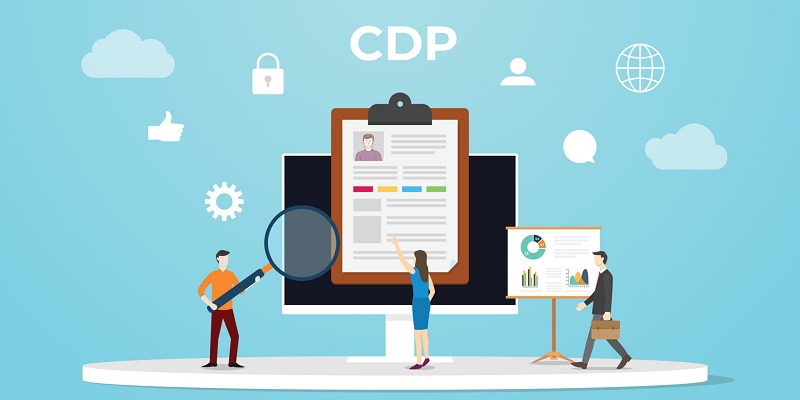In today’s interconnected world, where consumers engage with brands across multiple channels and devices, the ability to connect consumer identities and provide personalized experiences is crucial. This is where identity resolution platforms and Customer Data Platforms (CDPs) play a vital role. In this article, we will explore these platforms, their functionalities, and the benefits they offer in improving customer experiences and marketing effectiveness.
Definition of an Identity Resolution Platform
An identity resolution platform is a powerful tool that focuses on integrating and resolving consumer identifiers across channels and devices, enabling the creation of a persistent and addressable individual profile. By connecting consumer identities, these platforms allow for accurate personalization, seamless customer experiences, and enhanced marketing return on investment (ROI).
The Main Goal of an Identity Resolution Platform
At its core, the primary goal of an identity resolution platform is to connect consumer identities across various touchpoints and channels. This connectivity enables marketers to deliver personalized experiences that resonate with individual customers. Additionally, it empowers businesses to create seamless customer experiences by bridging the gaps between offline and online interactions. Ultimately, these efforts lead to enhanced marketing return on investment (ROI) and improved customer loyalty.
Customer Data Platform (CDP) Overview
A CDP is a software system designed to collect, organize, and activate customer data from diverse sources. It serves as a central repository for customer information and creates unified customer profiles. Through data ingestion, integration, and analysis, CDPs enable businesses to gain a comprehensive understanding of their customers.
CDP Functionality and Focus
CDPs excel in aggregating and unifying customer data from a wide range of sources, including online and offline channels. By integrating data from various touchpoints, CDPs provide a holistic view of customer interactions, preferences, behaviors, and demographics. Furthermore, they support personalized experiences across different marketing channels, enabling targeted and relevant communications.
Differentiating Identity Resolution Platforms and CDPs
While both identity resolution platforms and CDPs contribute to customer data management, there are key differences in their core functionalities. Identity resolution platforms primarily focus on resolving and integrating consumer identifiers across channels and devices. On the other hand, CDPs emphasize aggregating and unifying customer data from various sources, enabling marketers to gain a comprehensive understanding of their customers.
Integration and Capabilities of Identity Resolution Platforms and CDPs
Recognizing the complementary nature of their functionalities, some identity resolution platforms include CDP capabilities or seamlessly integrate with CDPs. This integration enhances data management and activation capabilities, empowering marketers with a unified view of customer data and enabling them to deliver effective and personalized marketing campaigns across multiple channels.
Benefits of Identity Resolution Platforms
Identity resolution platforms offer several advantages to marketers. Firstly, they provide a comprehensive view of customer activity across channels and touchpoints, incorporating both online and offline data signals and attributes. This holistic perspective allows marketers to identify valuable insights and trends, enabling them to optimize marketing strategies and improve customer engagement. Additionally, identity resolution platforms enable businesses to target specific audiences accurately, driving better campaign results and ROI.
Benefits of CDPs
CDPs offer unique benefits that contribute to deeper customer insights, audience segmentation, and personalized experiences. By aggregating and unifying customer data, CDPs empower marketers to gain a holistic understanding of their customers’ preferences and behaviors. This knowledge allows for effective audience segmentation, leading to highly targeted marketing campaigns. Furthermore, CDPs enable the delivery of personalized experiences across various marketing channels, increasing customer satisfaction and loyalty.
Consumer Identifiers
Consumer identifiers encompass the various data points used to identify an individual across different channels and devices. Examples include email addresses, social media profiles, device IDs, and loyalty program memberships. Accurate identification of individuals allows for effective targeting and personalization, making consumer identifiers invaluable for marketers.
Customer Profiles
Customer profiles are comprehensive records containing information about an individual customer. These profiles provide a holistic view of a customer’s interactions, preferences, behaviors, and demographics. By consolidating all relevant data, organizations can create a unified understanding of their customers, leading to more personalized experiences and improved marketing strategies.
In today’s highly competitive landscape, identity resolution platforms and CDPs are invaluable tools for businesses aiming to deliver personalized customer experiences and maximize marketing effectiveness. By connecting consumer identities, resolving consumer identifiers, and unifying customer data from various sources, these platforms empower marketers to gain deeper insights into their customers. The comprehensive view provided by identity resolution platforms and CDPs enables businesses to optimize marketing strategies, deliver personalized experiences, and ultimately enhance customer satisfaction and loyalty. Embracing these platforms is a transformative step towards achieving marketing excellence in the digital age.

